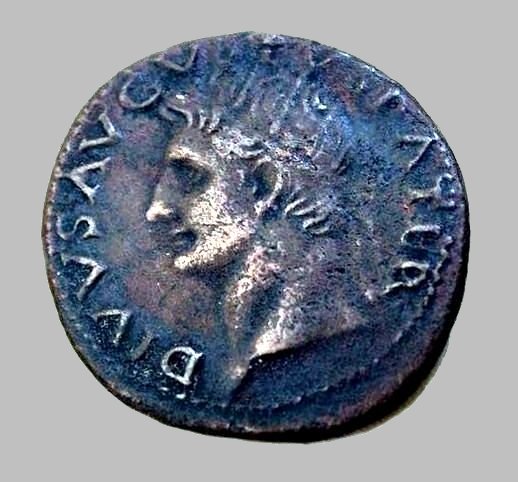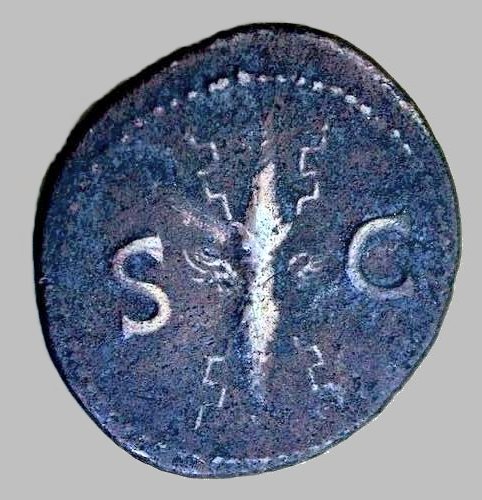

AE as, Divus Augustus |
 |
 |
This commemorative as was struck by Tiberius AD 14. The radiate crown on the obverse replaced the laurel wreath on coins commemorating a deified emperor. Occasionally Augustus' head is adorned with an oak wreath. From the time of Nero on it was used to distinguish the dupondius from the as and from AD 215 the radiate crown distinguished antoniniani from denarii. Obv. Head of Augustus, radiate left, around DIVVS AVGVSTVS PATER. Rev. Winged thunderbolt with forks of lightning upright between a large SC (senatus consulto - by decree of the senate) in field. The thunderbolt generally represents the power to wage war, while lightning was associated with divine providence. Through his apotheosis Augustus is identified with Jupiter, bearer of the thunderbolt. The figure of Augustus bearing a thunderbolt also appears on a medallion of Tiberius minted in Spain, where Augustus was nearly killed by thunder - an event that resulted in Augustus dedicating a temple to Jupiter Tonans on the Capitol. The thunderbolt featured frequently on coins as a symbol of power and as an attribute of not only Jupiter, but also Veiovis during the republican era, and particularly Apollo during the Augustan age. |
AE as, Divus Augustus |
| |
|
Obv. Augustus left, DIVVS AVGVSTVS PATER. Rev. SC, eagle on cippus (rectangular stone pillar with a funerary inscription. Throughout imperial times the eagle remained a prominent and powerful symbol for the city of Rome. The eagle was not only a common symbol of the city, it was also the minister of Jupiter's thunderbolts, a major symbol of power and was also found on Rome's military standards. |
AE as, Divus Augustus |
| |
|
The eagle became an important figure in consecration ceremonies where it was released from the summit of a funeral pyre symbolising the dead person's soul being carried up to heaven and therefore becoming a god. Obv. Augustus left, DIVVS AVGVSTVS PATER. Rev. Eagle facing, on cippus, SC. Commemorative coin struck under Tiberius. |
| Republican | Imperatorial | |
Greek Imperial | Byzantine |